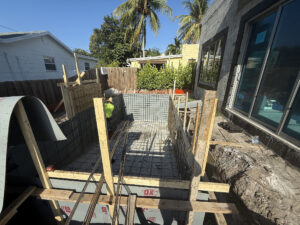Pool owners often have to deal with organic contaminants repeatedly in their waters. Removing dead matter and phosphates from the pools can be an ordeal. Most of these chemical compounds cannot be seen with the naked eye but can lead to significant problems with the equipment, appearance, and hygiene levels of the pool.
One of the most common chemical compounds found in the pool water are phosphates and these are responsible for causing significant pool issues. It is imperative to manage phosphates with the recommended pool phosphate treatment. These compounds can be removed after carefully analyzing water with test strips and adding adequate phosphate removers.
How do phosphates make their way into the pool?
Phosphates are made of phosphorous and oxygen and are present all around us. They’re essential foods for plants because they encourage growth and nutrition. But that is only for plants; what about pool health? Phosphates encourage algae blooms and an increased chlorine supply. This is an ideal environment for the algae to start propagating.
Typically, phosphates enter the swimming pool through rain, plant debris, cosmetics, body fats, residual makeup, dead skin cells, gardening material, laundry detergent, residual soap, and other chemical hair products. As you can see, the list is lengthy! Wind and sprinkler water carry dirt, parts of the landscaping, twigs, leaves, and other organic matter straight into the pool. Phosphates are artificially added to many products, including pool chemicals; thus, keeping them out of the pool is challenging.
Should phosphates be allowed into the pool?
While phosphates themselves are harmless, their presence can significantly boost algae growth, jeopardizing pool hygiene. The level of phosphates in the water directly influences the potential for algae proliferation; surprisingly, even a slight increase can lead to extensive algae development. To maintain clean and hygienic swimming conditions, it’s crucial to prevent algae dominance by actively managing phosphate levels.
Remember, you don’t want to swim in swamp-like conditions! Algae typically flourish in pools where water chemistry and sanitization are not properly maintained. It’s essential to consistently regulate water chemistry and remove phosphates promptly to prevent them from spiralling out of control, thus avoiding turning your pool into an algae breeding ground.
How can the phosphates be managed?
Use test strips or a test kit or hire a professional pool cleaning service to test the waters for phosphates, and if there is a presence of this element, use a phosphate remover. You don’t have to wait before you hit the calm waters; you can swim right after the treatment has been processed because the other pool water chemicals remain as such.
How can we prevent the build-up of phosphates in the pool waters?
Don’t think the job is done once you add phosphate to the water. Regularity is the key to phosphate prevention, so you need to:
1. Keep organic matter away from the pool by skimming the surface regularly.
2. Vacuum the pool and remove the stains sticking to the tiled areas.
3. Manually vacuum and remove the plant debris collecting in the water so there is no phosphate build-up.
4. Get the water chemistry tested regularly by a professional and take corrective action immediately so that no unexpected potential water problems creep up. The waters need to remain sparkling clean at all times so that you can enjoy a swim in crystal clear waters.
5. Because managing pool phosphates is a simple and fast job, it is essential to get it done frequently.
6. Regularity is the key, so pool maintenance by a reliable pool service can work wonders. Algae can be a headache and take a while to be treated, so don’t let it develop in the pool waters; instead, keep the rising phosphates under control by conducting periodic phosphate analysis.
Phosphates can accelerate algae growth even if present in deficient concentrations in the swimming pool water. Poorly maintained pools often show a greenish bloom on the surface. Adequately maintained pools with adequate water chemistry levels can control algae growth. Phosphates help algae grow and will make it difficult to control. You must add more sanitizer and phosphate remover to control the algae.
The pool waters, pH levels, and alkalinity must be in the recommended range and adequately balanced if there is a discrepancy. Finn’s Pool Services offers pool cleaning services in West Palm Beach and can take over your pool health. We ensure your pool’s sanitization levels are always maintained to prevent phosphates and algae blooms. Our teams work hard to clean the pool with regular brushing and vacuuming. A clean pool is our job, and enjoying swimming in clear waters is yours, so go for it!



